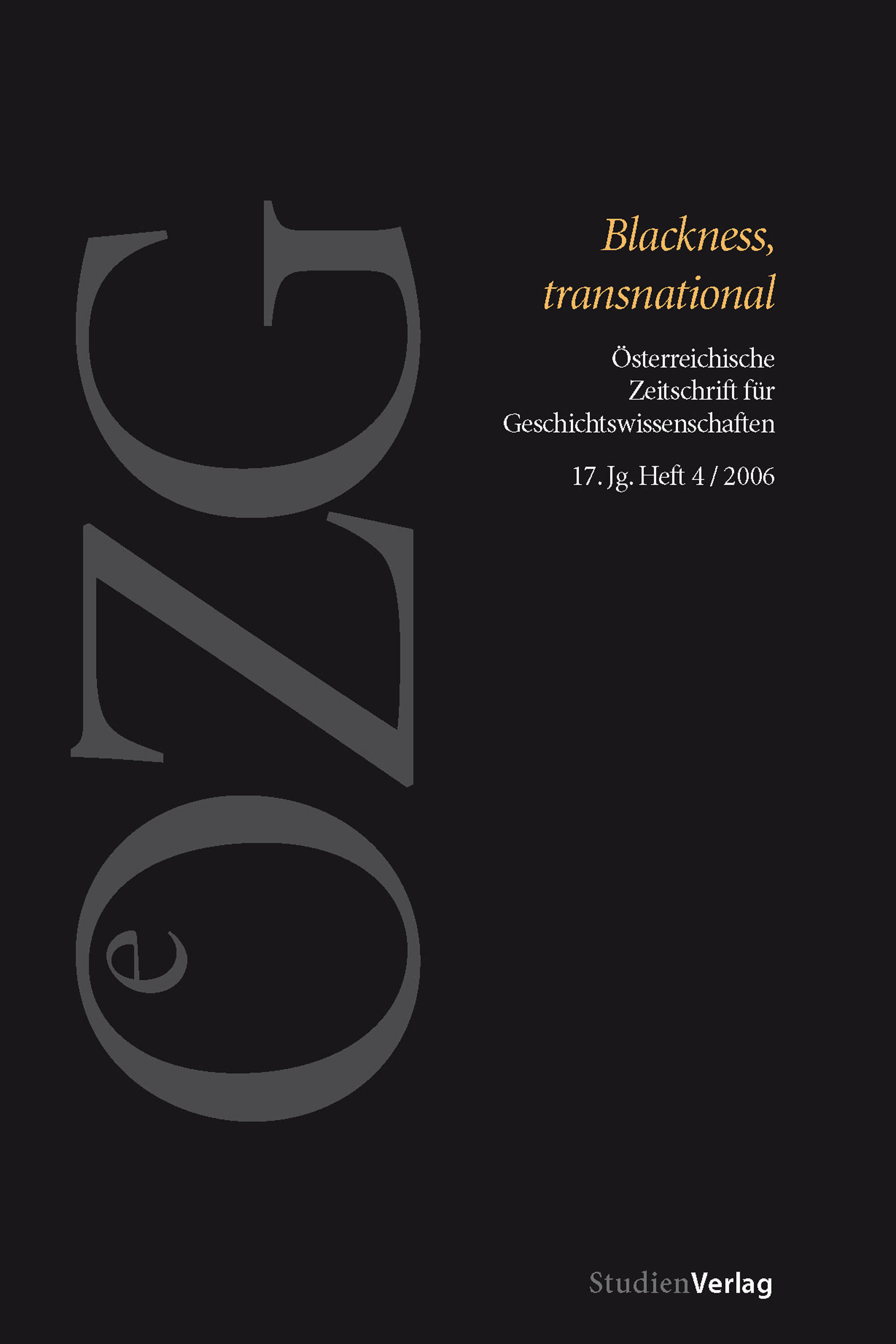From »Negro Slave« to »Slave of Capital«
DOI:
https://doi.org/10.25365/oezg-2006-17-4-5Abstract
This article explores the debate on »black Americans« among Leftists in the Weimar Republic in the framework of their broader anti-imperialist critique of capitalist modernity. Starting with parallels in the iconographical representation of America in works by Arntz and Heartfield, the article reconstructs this debate through an analysis of the Arbeiter Illustrierte Zeitung, of articles from Pfemfert’s Aktion, and contemporary travelogues and essayistic writings on America. It also shows the importance of Upton Sinclair’s novels for this variety of Americanism. The article shows that the social and political reality of African Americans as well as of Africans in the colonies here becomes an essential part of the codification of blackness. At the same time, the political instrumentalization of racial stereotypes not only in America, but also in the German nationalist »Schwarze Schmach«-Propaganda becomes subject of a political critique. However, the discourse partly displays the same stereotypes which it criticizes when used bynationalists.


